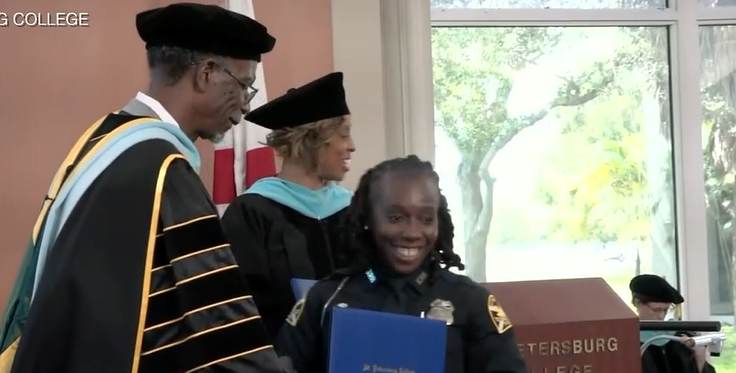TAMPA, Fla. — In 2020, the First Responder Hope Line (1-866-4FL-HERO) was launched to address the growing need to help first responders suffering from mental health issues.
The statistics surrounding first responder mental health are troubling.
WATCH: Protecting the Protectors: Breaking the 1st responder stigmas around mental health
According to the Crisis Center of Tampa Bay, which fields calls through the Hope Line, "More than 6.6% of first responders have attempted suicide—10x the national average. PTSD and depression rates among firefighters and police officers have also been found to be 5x higher than the general population."
In 2024, 1,388 people used the line. That number could be first responders seeking help or family and friends calling to get resources.
"First responders are dying by suicide more often than they're being killed in the line of duty—some pretty hard numbers to look at. The numbers are increasing for all people needing help, and we provide that service here," Meg Ross, ambassador for the First Responder Hope Line, said. "First responders are beginning to make use of this line, and we want to encourage that it's available, confidential, and not connected to your agency."
Ross spent 33 years as an officer with the USF Police Department, retiring as assistant chief.
ABC Action News reporter Michael Paluska interviewed Ross at the Crisis Center of Tampa Bay. The phone lines never stopped ringing as people called for help, and Ross said that was a good thing.
"It means we're breaking that stigma and where first responders are recognizing that it makes them stronger when they reach out for help," Ross said.
At the Sun Coast Police Benevolent Association, Paluska interviewed two current St. Petersburg Police Department officers.
Officer Jessica Bayly and K-9 officer Jon Vazquez protect our streets every single day. They have made it their mission to help fellow officers in need, and for both, it is personal.
"We lost her to her battle with mental health in November of 2019," Bayly said.
Bayly's mom, Kelly Jo Brubaker, was a sergeant with the Orange City Police Department. Bayly described her mom as "walking sunshine," "kind," and "selfless."
"I would like to say that, you know, things were missed, but they weren't. We tried to do everything we could to prevent it," Bayly said. "But, unfortunately, she didn't have the resources, didn't have the support from her physicians or people to help get her out of it. Even though we tried, unfortunately, the battle became too tough for her."
Despite her mom's struggle with her mental health, Bayly says her mother dedicated her life to helping others.

"She was selfless, and sometimes to a fault. She would spend so much time and energy on other people and trying to fix them, even if that meant neglecting herself a little, because she was a fixer. She always cared about people and did everything she could to make their day a little better," Bayly said. "She focused highly on mental health and helping those around her who were suffering. The amount of stories people have shared with us since her passing shows how impactful she was not just on those who loved her, but those who had only just met her."
"How come you don't have a stigma talking about it? Did you have something that impacted you?" Paluska asked Vazquez.
"I lost a lot of people in the military to suicide. So, you know, we lost about 17 people in combat," Vazquez said. "But then they come back home and then have people take their own lives, like it didn't make sense to me, like we just survived the deployment in Iraq. We survived getting blown up. You were injured, but you lived, and now you took your own life, like that was mind-boggling to me."
The Sun Coast PBA is now helping officers get even more training to deal with mental health issues, teaming up with St. Petersburg College to enroll officers in a new program. According to their website, "SPC's Applied Mental Health Advanced Technical Certificate offers critical skills to professionals, particularly in the law enforcement field, who face mental health issues—both personally and among the citizens they serve."
Now, in its second year, the first class graduated 14 officers. On July 12, more will graduate from the program.
"Suicide is a real thing, and I think the more we say it, the more you try to hide it. You know, you play into the stigma thing. And I'm one of those that I'd rather have it right to you in front of your face and say exactly the truth about it. We have cops committing suicide. One is too much, but way too frequently," Vazquez said.
Resources:
- First Responder Hope Line (1-866-4FL-HERO)
- National Suicide Prevention Hotline: 800-273-8255 (TALK)
- Stewart-Marchman-Act Access Line: 800-539-4228





